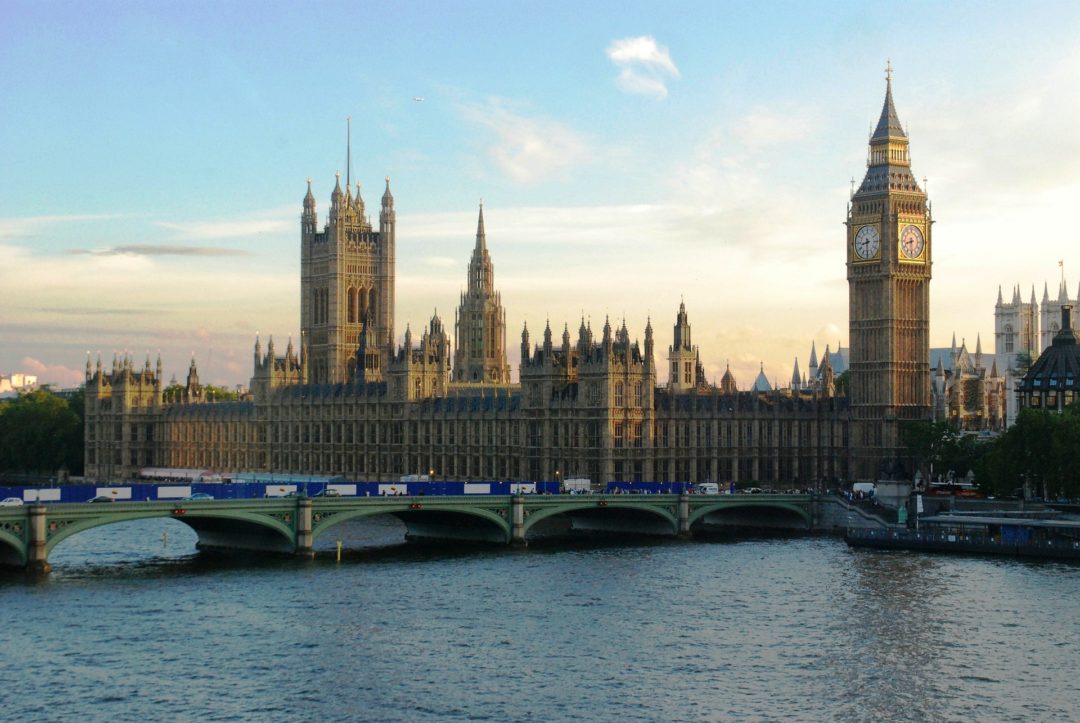Budget 2020: Predictions
Rishi Sunak will deliver the 2020 Budget on Wednesday 11 March. But what can we expect when the Chancellor opens his red box?
Craig Walker, a tax specialist at Hawsons, gazes into his crystal ball:
With a substantial majority, the government have an opportunity to be radical and adventurous in this Budget, and we could see some major tax changes announced. We can expect the fruition of some of the Conservative manifesto pledges and an undertaking to “level up” and “unleash the country’s potential” post Brexit. The Chancellor is under pressure to increase spending on the NHS, social care and schools, but the manifesto said the government would not put up income tax, national insurance or VAT. He must therefore either find other ways to raise taxes or abandon the government’s targets on borrowing.
Personal Tax
Income Tax
The Conservative party pledged during the election process not to raise income tax or national insurance rates (in England and Northern Ireland), so no changes are expected.
The tax-free personal allowance is set to remain at £12,500 for the 2020/21 tax year.
The prime minister previously pledged to raise the threshold at which people pay higher rate (40%) tax from £50,000 to £80,000 but this proposal appears to have been dropped completely.
A cut to National Insurance (NIC)
As promised in the manifesto, the threshold below which no NIC is payable (the primary threshold) is expected to raise from £8,632 to (at least) £9,500 in April. This will provide an annual saving of £104 for workers. The prime minister has set an NIC threshold of £12,500 as his “ultimate ambition”.
A raid on tax relief for pension contributions?
We could see some changes to the pensions tax relief regime to reduce the cost to the Treasury, with tax relief on pension contributions estimated to cost the Treasury around £40bn per year. Although unpopular with high earners, it would not be surprising to see tax relief for pension contributions restricted to a flat rate such as the 20% basic rate of income tax (rather than the individual’s marginal rate of tax). As part of these reforms we could see the removal of the controversial annual allowance charge. However, ahead of the previous Budget there were similar rumours of a pension overhaul and the reform never actually materialised, so we could see no significant changes to pensions relief.
Business Tax
The abolishment of Entrepreneurs’ Relief?
The Conservative party pledged to “review and reform” Entrepreneurs’ Relief in their election manifesto and further details are expected to be announced in the forthcoming Budget. It seems unlikely that that the relief will be abolished altogether but changes are expected. Further information on the possible changes can be found here.
Please note: It is important to seek advice on the availability of Entrepreneurs’ Relief well in advance of a sale to ensure that the relevant requirements will be met.
Promote innovation
The Chancellor is expected to increase the amount of tax relief provided to companies undertaking R&D, by increasing the R&D tax credit rate for large companies from 12% to 13%. We could also see the Chancellor widen the definition of R&D to support investments in cloud computing and data.
Changes to VAT?
Currently businesses only have to charge VAT if their taxable turnover exceeds £85,000 a year and the government has pledged to keep the VAT threshold at £85,000 for the next 2 years.
An increase to the rate of VAT has been ruled out and there is some speculation that the Chancellor may even be considering reducing the rate of VAT.
Tax relief for building new business premises
The rate of the Structures and Buildings Allowance will be increased from 2% to 3% to encourage businesses to build new premises.
Corporation Tax
Rate cut scrapped
As previously announced, the planned cuts to corporation tax in April, from 19% to 17%, will be put on hold. However, the Chancellor will be keen to send a strong signal that the UK remains a good place to do business following Brexit.
Digital Services Tax
The government have pledged to implement the Digital Services Tax, despite opposition from the US. This is a new 2% tax on the revenues of search engines, social media platforms and online marketplaces which derive value from UK users. The new tax is set to be introduced in April 2020.
Northern Ireland
The rate setting power for corporation tax in Northern Ireland will be devolved to the NI Assembly. So we could see a reduction in the corporation tax rate in Northern Ireland.
Non-UK resident companies
From 6 April 2020, non-UK resident companies that carry on a UK property rental business or have other UK property income will be liable to corporation tax instead of income tax and will have new reporting requirements.
Capital Gains Tax (CGT) & Stamp Duty Land Tax (SDLT)
CGT rates to rise?
Although the government ruled out increases to income tax, VAT and NIC, this did not extend to taxes such as capital gains tax and the Chancellor could choose to increase the rate of tax charged on the disposal of assets, such as shares or property, in order to increase Treasury receipts.
Report and pay CGT on property sales within 30 days
From 6 April 2020, capital gains tax due on the disposal of residential properties will need to be reported and paid within 30 days of the completion date. This is the latest acceleration of tax payment dates for CGT and follows changes introduced for non-UK resident disposals in April 2019.
Private Residence Relief
From 6 April 2020, Private Residence Relief which allows an additional grace period of the last 18 months of ownership will be halved to nine months.
Lettings Relief
Lettings Relief is a valuable CGT relief which gives up to £40,000 of additional relief where a property which was previously a main residence is then let out. The government has announced that the relief will be reformed so that from 6 April 2020 it will only apply where an owner is in shared occupancy with a tenant. This is relatively unlikely so this change may increase the amount of tax payable on the sale of a dwelling by up to £11,200, or £22,400 for a couple.
First time buyers
In an attempt to boost the housing market, the Chancellor may be considering providing further assistance for first time buyers, perhaps through cuts to the rates of Stamp Duty Land Tax (SDLT).
Additional SDLT for non-UK residents
A 3% Stamp Duty Land Tax (SDLT) surcharge for non-residents buying UK residential property is expected to be introduced, to be paid in addition to all other SDLT surcharges.
Employment Tax
Off-Payroll Workers
The off-payroll working rules have been in place since 2000 and are relevant to those working through personal service companies. In 2017 the government reformed the operation of the rules for the public sector and is set to extend this to all medium and large organisations from April 2020. This will shift responsibility for operating the IR35 rules to the organisation that engages the worker.
Further details and guidance on how to prepare for the changes can be found here.
Minimum wage rates to rise
The minimum wage rates are set to rise substantially in April. Details of the new rates can be found here.
Inheritance Tax
Reform imminent?
Last year the Office of Tax Simplification undertook a review of Inheritance Tax (IHT) and urged substantial changes to be made. A group of cross-party MPs have recently echoed these comments and recommended a radical overhaul of the IHT system, including a substantial cut in the 40% rate to 10% and the scrapping of most reliefs including the “seven-year rule”.
We could see announcements in the Budget aimed at simplifying the system and reforming the various IHT reliefs and exemptions.
Anti-Avoidance
Closing tax loopholes
We can expect the government to introduce new anti-tax avoidance and evasion law to help reduce the UK tax gap. This has been a recurring theme in recent Budgets.
Other
Fuel duty
Fuel duty has been kept at its current level since the Conservatives took power and during the election the Prime Minister said he had “absolutely no intention” of ending the fuel duty freeze. However, the government has suggested that a green agenda is one of its priorities and we could see a fuel duty rise for the first time in a decade.
Tax simplification
There is a widespread acceptance that the UK’s tax rules are overly complex and continue to become even more so. Businesses would welcome simplification of the rules and the Budget provides the Chancellor with an opportunity to take action in this area. Perhaps we could see a closer alignment of income tax and NIC rules.
This article comes with the usual disclaimer regarding all rumours and predictions: they should not be considered fact until they have been uttered by Mr Sunak himself.
Our tax specialists will be watching the Budget on 11 March and will provide commentary on the announcements. To pick up on our commentary, follow us on Twitter (@Hawsons) or LinkedIn.
More from our tax experts
You can find all of our latest tax articles and tax resources here.
If you are looking for advice in a particular area, please get in touch with your usual Hawsons contact.
Alternatively, we offer all new clients a free initial meeting to have a discussion about their own personal circumstances – find out more or book your free initial meeting here. We have offices in Sheffield, Doncaster and Northampton.

